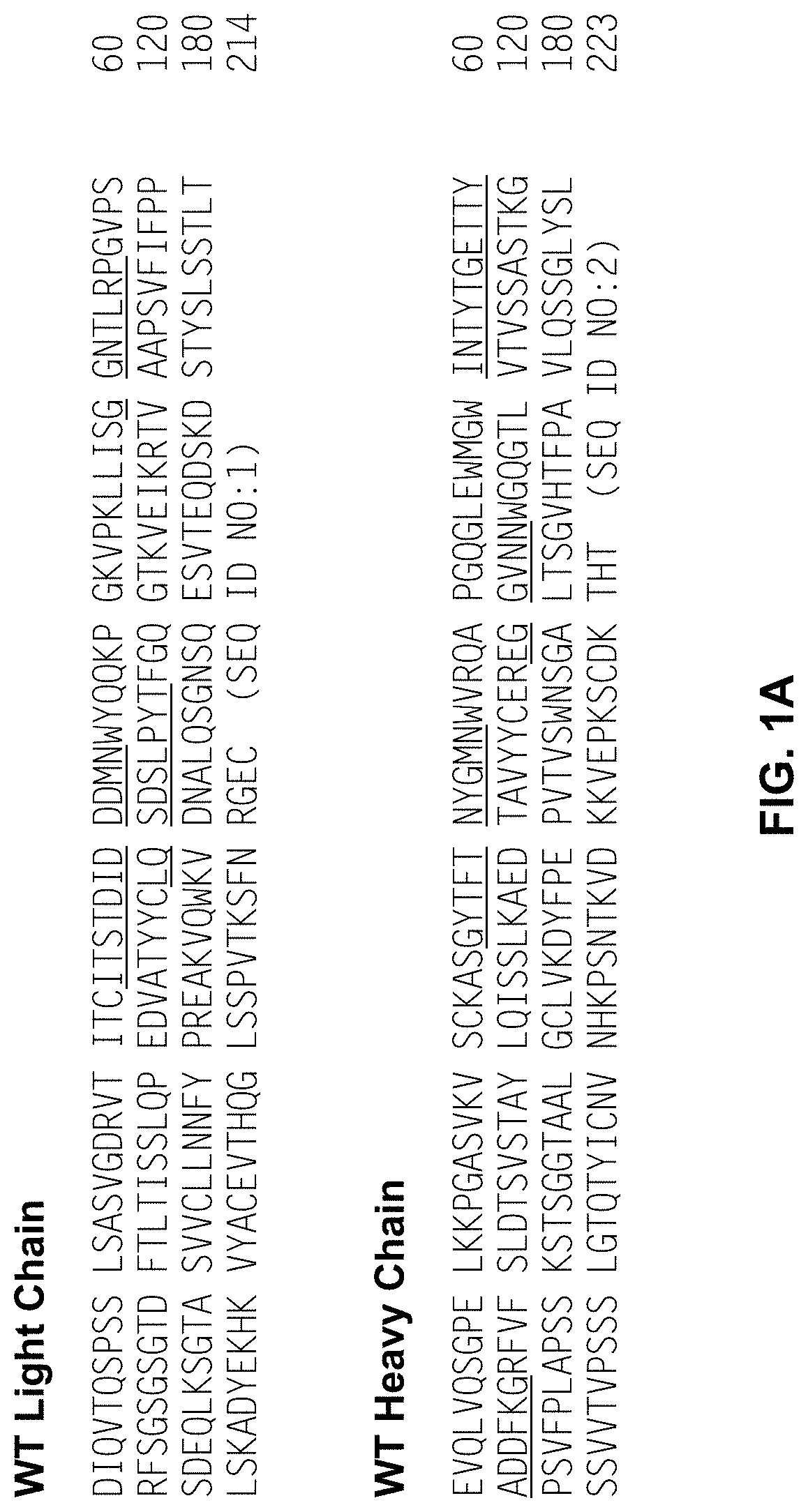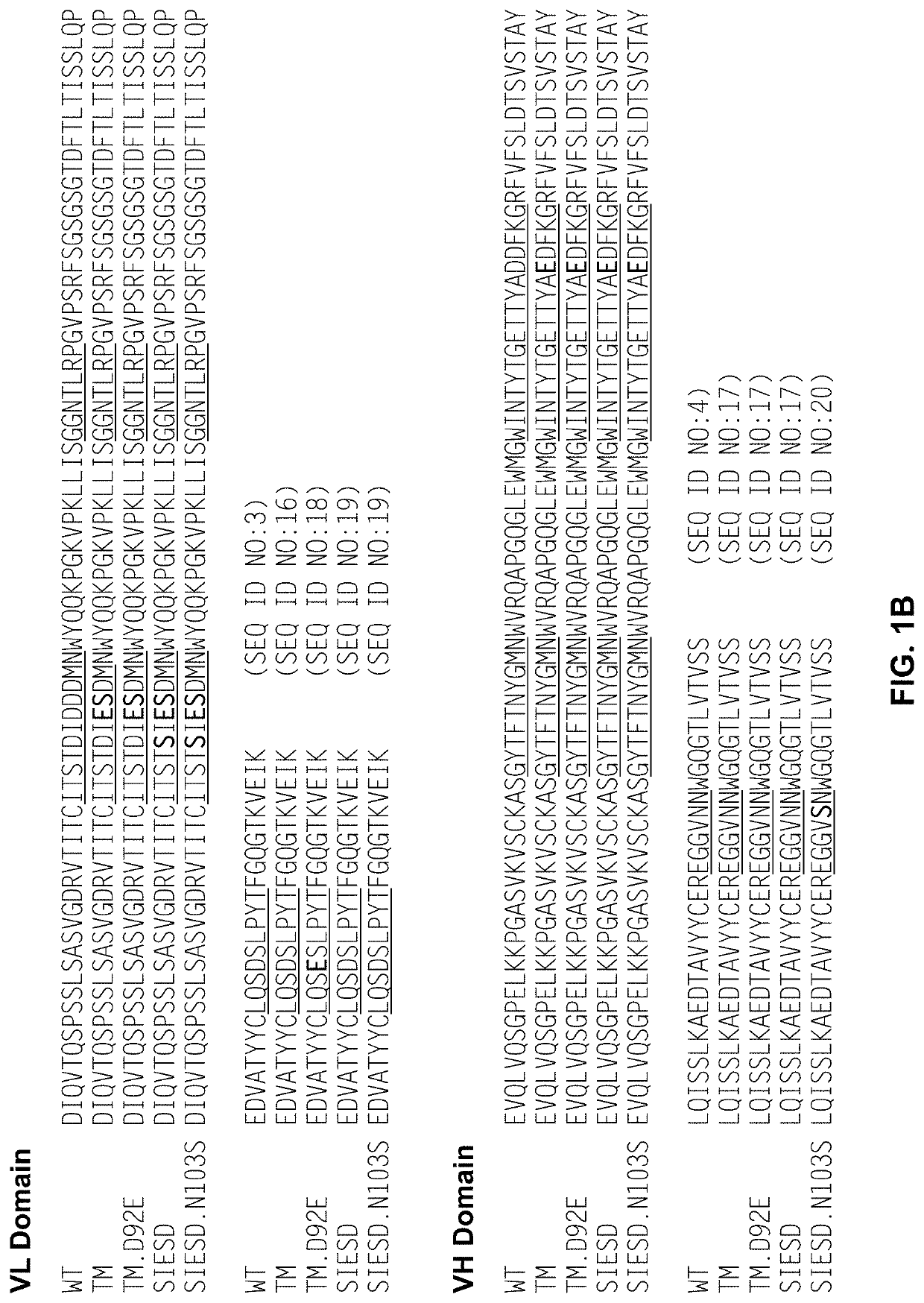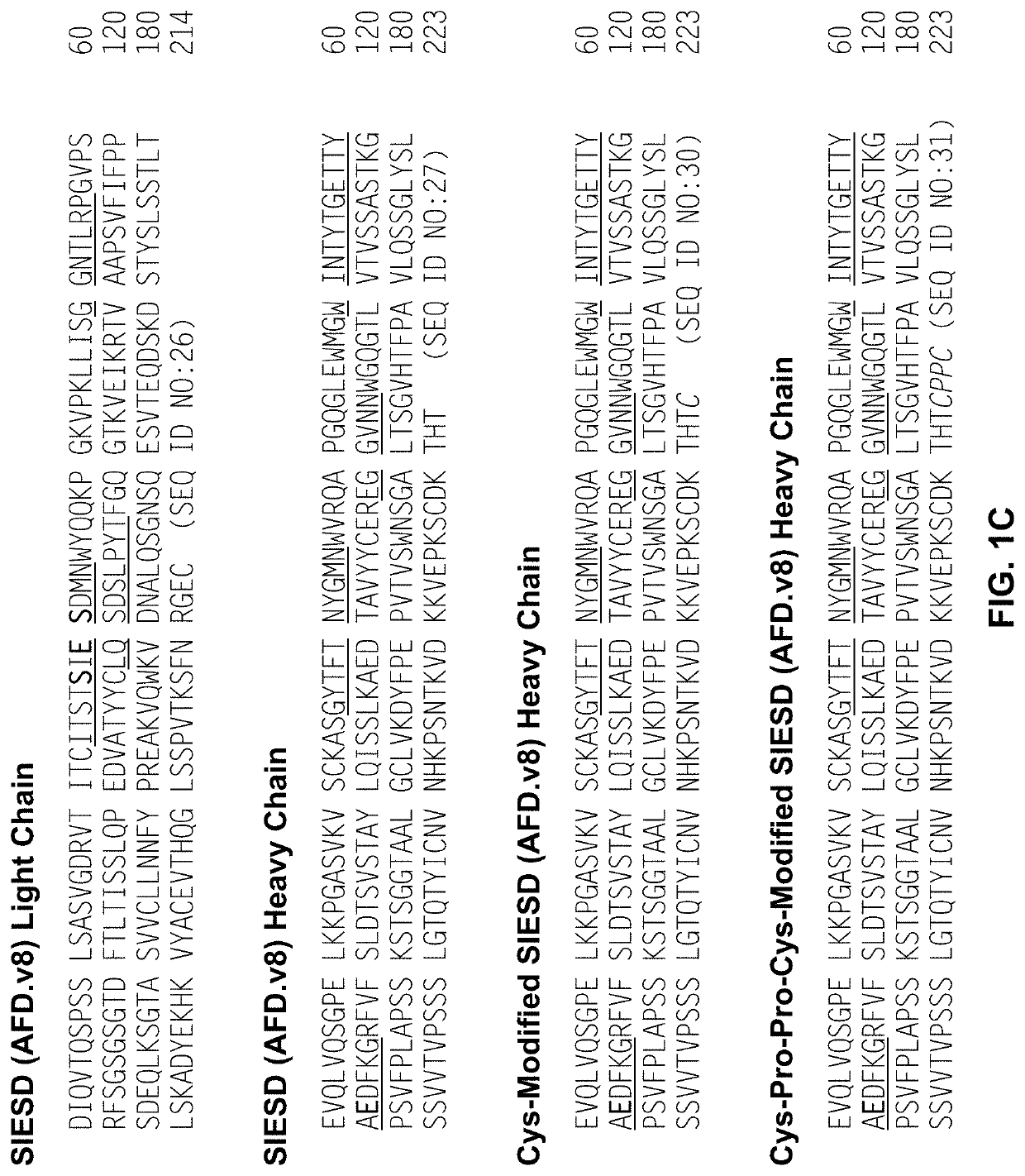Anti-factor d antibody variant conjugates and uses thereof
a technology of anti-factor d and variant conjugates, which is applied in the direction of drug compositions, peptides, extracellular fluid disorders, etc., can solve the problems of protein instability, protein degradation, and protein stability, solubility, viscosity and other protein properties, etc., to improve the stability and overall potency of antibodies, improve the aqueous humour half-life, and/or the effect of retinal half-li
- Summary
- Abstract
- Description
- Claims
- Application Information
AI Technical Summary
Benefits of technology
Problems solved by technology
Method used
Image
Examples
example 1
n of Anti-Factor D Antibody Variants
[0295]Lampalizumab, a humanized anti-Factor D Fab fragment that potently inhibits Factor D and the alternative complement pathway, through binding to an exosite on factor D is currently in clinical development for the treatment of geographic atrophy (GA), an advanced form of dry AMD. Lampalizumab (FCFD4515S; hereinafter “aFD”) is an antibody Fab fragment comprised of a 214 residue light chain (SEQ ID NO:1) and a 223 residue heavy chain (SEQ ID NO:2).
[0296]While results of a phase II human clinical trial in GA indicate that a treatment effect is obtained with monthly intravitreal injection of aFD, there exist incentives to use higher drug doses to achieve even better efficacy. Meanwhile, less frequent dosing would provide improved convenience to the patient, have potential benefits of decreased infection rate and increased clinical efficacy, and could facilitate treatment of patients with less advanced forms of dry AMD.
[0297]Efforts were made to fu...
example 2
ties of the Anti-Factor D Antibody Variants
[0301]Promising single and combination mutants were tested for factor D (fD) binding affinity and ability to inhibit factor D activities.
a. Factor D Binding Affinity by Surface Plasmon Resonance (SPR) Measurements
[0302]Kinetics and binding constant KD for factor D binding to immobilized aFD.WT and variants thereof was determined by surface plasmon resonance (SPR) measurements on a Biacore®T200 instrument. Antibody Fab fragments were immobilized on a Series S CMS sensor chip using the anti-huFab capture kit (GE healthcare Cat. #28-9583-25) following a protocol described by the manufacturer. Kinetics of binding were calculated from sensorgrams recorded for injection of 60 μL aliquots of solutions of human factor D varied in concentration from 0.39 nM to 25 nM in 2-fold increments. The flow rate was 30 μL / minute, the running buffer was HBS-P+, the temperature of analysis was 25° C., real-time reference cell subtraction was employed, and dissoc...
example 3
or D Antibody Variants with Improved Stability
[0309]Based on the affinity assays above, several single and combination anti-Factor D antibody variants were selected for further stability analysis.
a. Solubility
[0310]Samples were initially tested for solubility at low ionic strength and pH 6. Samples were first prepared in 20 mM His-HCl pH 5 buffer by concentration to ˜100 mg / mL using Amicon Centriprep YM-10 centrifugal filter units. These solutions at pH 5 and low ionic strength did not show turbidity upon visual inspection. Samples were centrifuged at 14,000×g for 10 minutes to pellet any insoluble material. No pellet was observed, and the protein concentration of the solution was determined by UV absorbance measurements. Samples (˜1 mL) were placed in Slide-A-Lyzer cassettes of 10 K MWCO (Pierce) and dialyzed overnight at 4° C. versus 1 L of 20 mM His buffer, pH 6, followed by visual inspection for turbidity. Photographs of the solutions were taken and are provided in FIG. 6. At pH...
PUM
| Property | Measurement | Unit |
|---|---|---|
| concentration | aaaaa | aaaaa |
| concentration | aaaaa | aaaaa |
| concentration | aaaaa | aaaaa |
Abstract
Description
Claims
Application Information
 Login to View More
Login to View More - R&D
- Intellectual Property
- Life Sciences
- Materials
- Tech Scout
- Unparalleled Data Quality
- Higher Quality Content
- 60% Fewer Hallucinations
Browse by: Latest US Patents, China's latest patents, Technical Efficacy Thesaurus, Application Domain, Technology Topic, Popular Technical Reports.
© 2025 PatSnap. All rights reserved.Legal|Privacy policy|Modern Slavery Act Transparency Statement|Sitemap|About US| Contact US: help@patsnap.com



